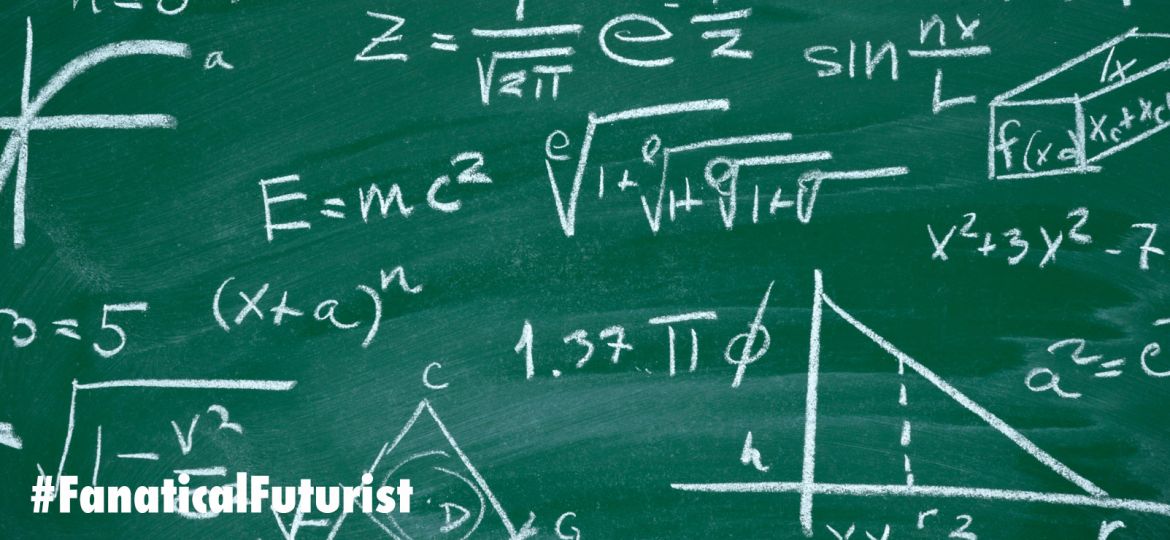
WHY THIS MATTERS IN BRIEF
AI is finding its way into every industry and the education industry isn’t immune, as a result we’re starting to see the rise of intelligent and adaptable AI learning systems that offer each student their own personalised learning experience.
A leading UK education advisor, Sir Anthony Seldon, who is the Vice Chancellor of the University of Buckingham, has warned that robots, more of the Artificial Intelligence (AI) kind than the hardware kind, will begin replacing teachers in the classroom within the next ten years as part of a revolution in one to one learning, and he went on to say that intelligent machines that can adapt to suit the learning styles of individual children will soon render traditional academic teaching all but redundant.
The former Headmaster of Wellington College said that some of the learning and education programmes that are currently being developed in Silicon Valley are learning to read the brains and facial expressions of pupils, and then adapt teaching style to the one that works best for the pupil.
Think of it this way, every one of us learns in a slightly different way and today’s classrooms teach one subject in one way to everyone, often irrespective of their preferred learning style, and this is the “problem” that these new adaptive learning systems are trying to solve. Personalised learning, such as one on one tutelage is an expensive luxury that many can’t afford, so these could be a way to bridge the gap.
The new era of automated teaching, or as I prefer to call it, adaptable teaching, promises to bring an end to grouping children by year, as the personalised nature of the robots will let pupils learn new material at their own pace, rather than as part of a larger monosyllabic class.
“It will open up the possibility of an Eton or Wellington style education for all,” Sir Anthony said, “everyone can have the very best teacher and it’s completely personalised, the software you’re working with will be with you throughout your [entire] education journey.”
He warned, however, that the new technology would have to be carefully introduced to avoid “infantilising” pupils and teachers.
As part of robot led learning, teachers would adopt the role of “overseers,” monitoring the progress of individual pupils, leading non academic activities and providing pastoral support, he said.
The efficiency of automated teaching would also mean that only 30 per cent of school time will be spent in class – something that I’m sure we’ve heard elsewhere… didn’t IBM promise us all a three day working week when the PC arrived? Anyway…
“The impact is going to be massive” he said, “this is beyond anything that we’ve seen in the industrial revolution or since with any other new technology.”
The first revolution consisted of learning the basics of survival – foraging, hunting, growing crops and building shelters. The second involved the first organised sharing of knowledge, and the third was marked by the invention of printing, he said.
Automated teaching machines would be “extraordinarily inspirational”, Sir Anthony said.
“You’ll still have the humans there walking around during school time, but in fact the inspiration in terms of intellectual excitement will come from the lighting-up of the brain which the machines will be superbly well-geared for. The machines will know what it is that most excites you and gives you a natural level of challenge that is not too hard or too easy, but just right for you.”
He also said he expected the UK’s National Union of Teachers to be “very alarmed” by the prospect.
“The technology’s already beginning to arrive,” he said, “it’s already there on the west coast of the US and it’s already beginning to transform schools, and I’m expecting this to happen in the next 10 years.”
“The great danger is that it takes jobs away, and for humans beings much of our fulfilment in life comes from the satisfaction of work,” he added, “if we get the technology wrong it will end up doing everything for us in the same way that satnavs mean we no longer know how to read maps.”
Meanwhile elsewhere other experts are predicting that the automation of the teaching of English and Maths will be at the forefront of automating education, and that over time sophisticated algorithms will manage to get their silicon brains around humanities too.
However, all this said, and while I agree with Sir Anthony that over time we will see new AI fuelled “adaptive learning” programs arriving in our classrooms, predominantly, at first, as “teaching aids” and then taking more of a leading role, the AI educational iOS apps that I and my children have been asked by companies to evaluate, such as Smartick, a maths program that’s won lots of awards across Europe, have come up heinously short, so much so that I ended up kicking their app into touch, but all that will change in time.
From a personal standpoint, I’m a fan of anything, or anyone, that can help my children enjoy their educational experience and that encourages and helps them to learn better and more effectively, but at the same time we shouldn’t loose sight of the fact that automated education platforms that replace the teacher, rather than simply augmenting them, which they might in time, especially when we’re discussing educating people in remote areas like the Australian outback, will be a very bad thing. However, if being taught by an AI gets all too much for our kids then in twenty to thirty years time they’ll be able to upload information to their brains directly, Matrix style, and at that point these AI systems will look like old technology.















